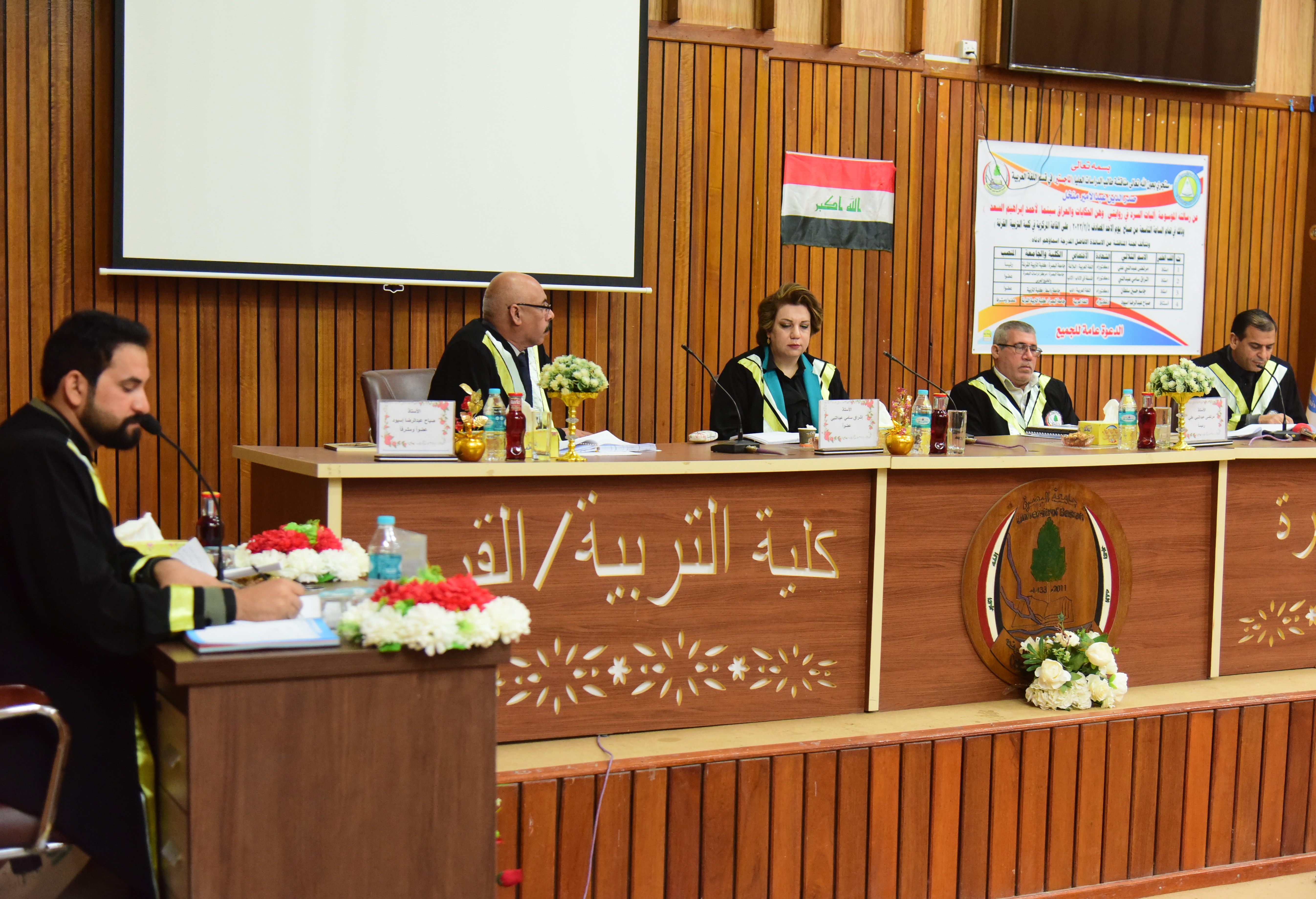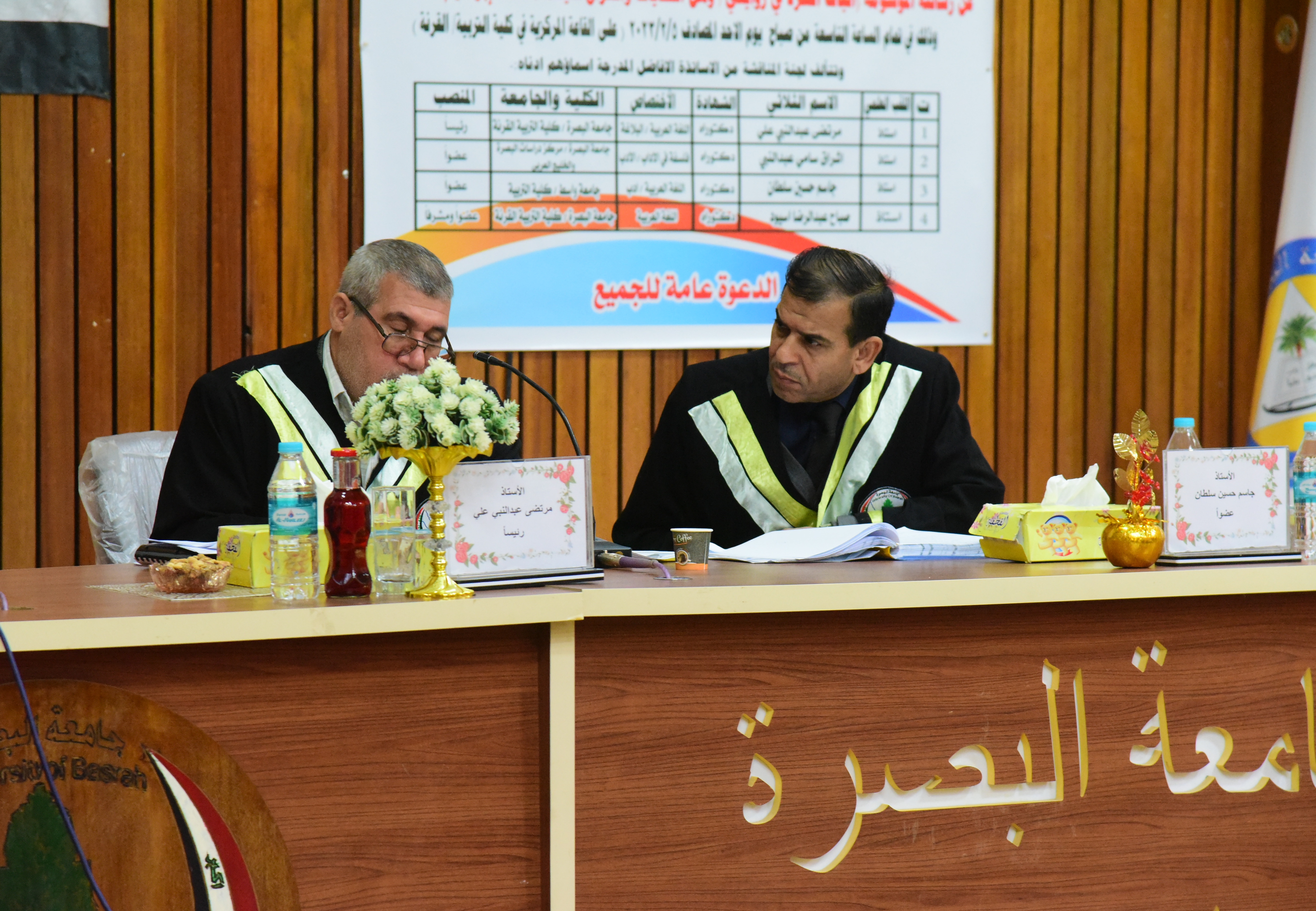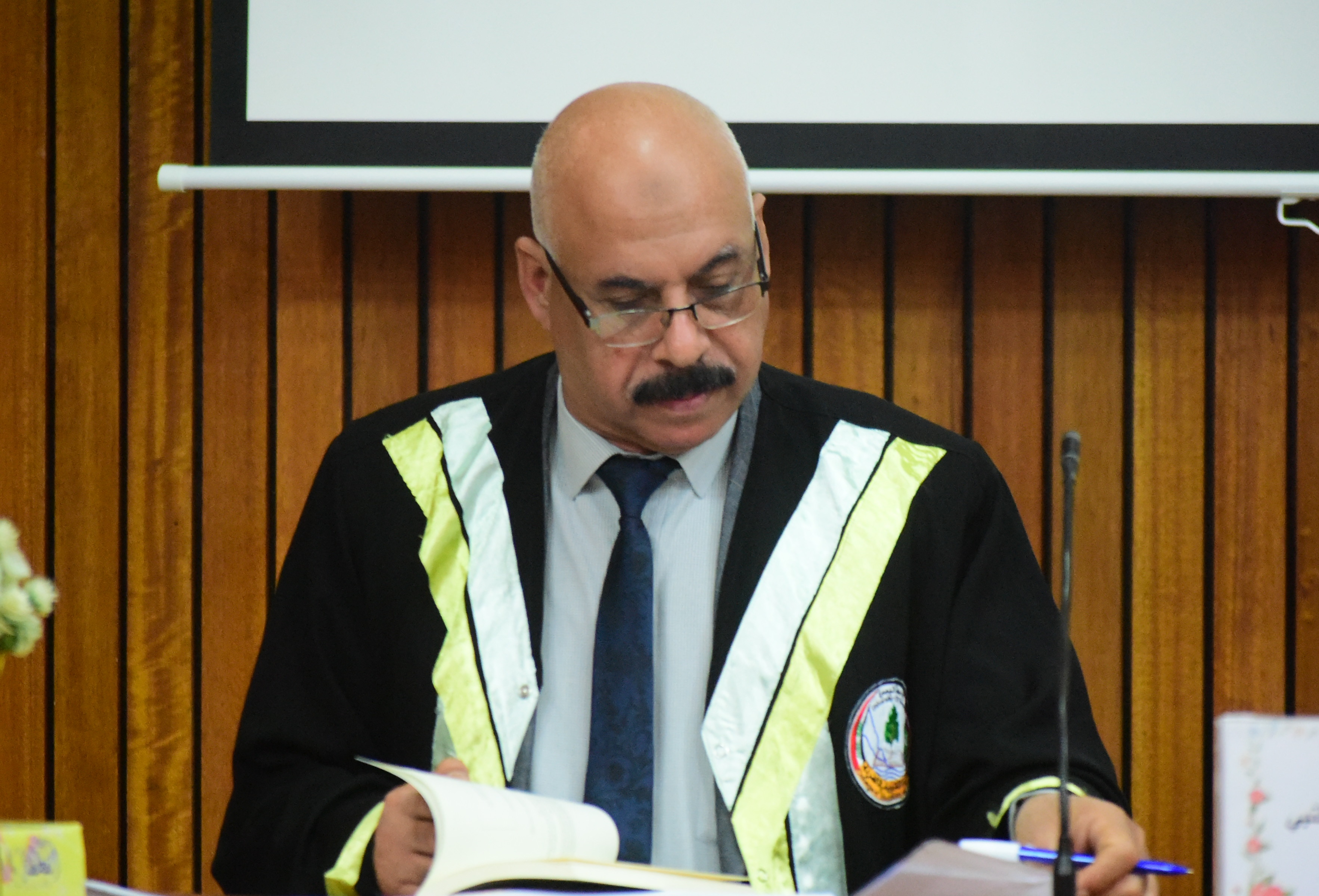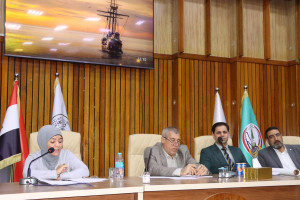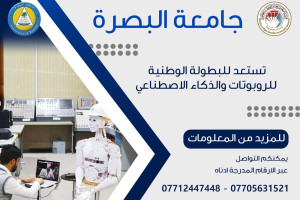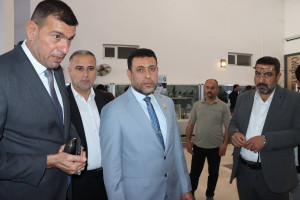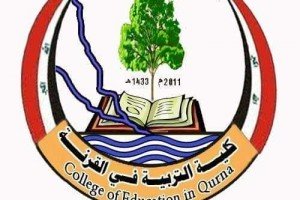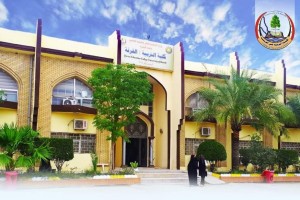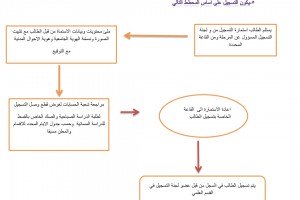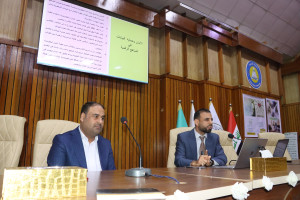
A master's thesis in the Department of Arabic Language at the College of Education Qurna at the University of Basra discussed the study of narration mechanisms in my novel (They are Stories and Iraq is Cinema) by Ahmed Ibrahim Al-Saad by the researcher Sadr al-Din Abd al-Amir Mankhel in the central hall of the College of Education Qurna
Where the study dealt with (Ahmed Ibrahim Al-Saad, his life and the influences in his literature), in which I presented the most prominent attitudes and postulates in Al-Saad’s life and their impact on his two novels. The first chapter concerned the study of the personality, and the characters were of two types, the first of which is the main characters, which are influencing the heart of the events and moving them, while the second topic examines the secondary characters that varied and multiplied according to the positions adopted by the two novels.
The second chapter was entitled Time, which was divided into two sections. It dealt with in the first section the level of arrangement that was distributed on the techniques of retrieval and anticipation. speed up the narration.
As for the third and final chapter, it was titled “The Place”, which was divided into two sections. In the first section, it dealt with the open places that were represented by the city, the neighborhood, the street, the village, the café, the river and the desert, and in the second section, we dealt with the closed places that were represented by the house, prison, hospital and night club.
The results showed the findings of the study, and those results were about twenty paragraphs, which indicates that the creator Al-Saad was the best way to highlight Iraqi and visual literature from him in particular.
The research adopted the descriptive analytical approach, because delving into a sea of choppy waves and without the previous ones understanding its depths requires us to stop at the resting places of the two novels, so the tendency is to highlight them by describing them and then analyzing the ideas and visions they experienced that may be absent from the scholars and recipients.
